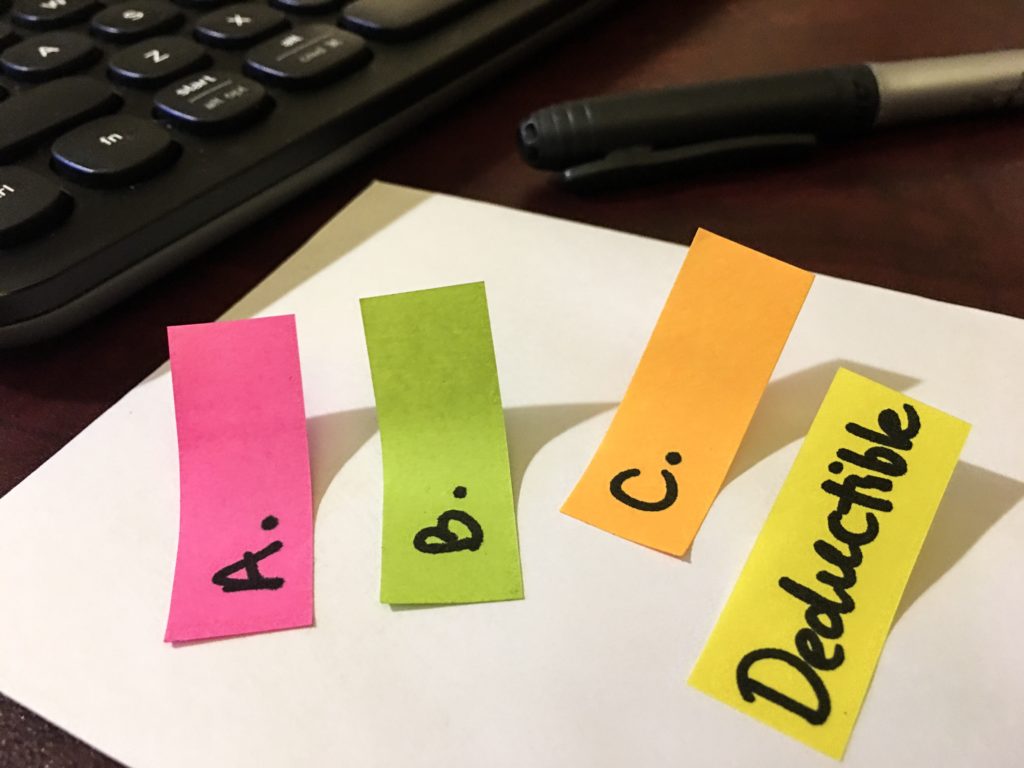A car insurance deductible is the amount of money that you need to pay towards car repairs before your insurance policy covers the rest. For example, if you get involved in a car crash that causes damages worth of $2,000 and the deductible is $500, you’ll have to pay $500 out of pocket. This means that a premium auto insurance package will have a smaller deductible amount, while an inexpensive insurance package will have a high deductible.
Choosing how much your deductible should depend on your lifestyle, savings, risk, and personal choices. Usually, this decision is made after a conversation with an insurance agent.
But before you make a decision, let’s take a look at a few questions you should ask yourself before choosing an auto insurance.
Questions you should ask yourself before choosing an insurance deductible
Most drivers would go straight for the inexpensive car insurance options, but is this the best option for you in the long-term? What happens if you get involved in a car accident and your out-of-pocket expenses can’t be covered? To help you out, I put together a series of questions you should ask yourself to determine which option suits your lifestyle and how you can save money.
1. How large is your emergency fund?
If you choose to go for an inexpensive auto insurance package, you have to be ready to pay your deductible. You won’t be able to pay a large deductible if you have a mortgage, students loans, or any other types of debt that prevent you from putting money aside. Even a $1,000 deductible can throw you off if you don’t have some money set aside. Getting a loan to cover the damages not only comes with an interest rate, but it might put even more weight on your shoulders if you’re already in debt.
2. What’s the real value of your vehicle?
The real value of your vehicle isn’t how much you paid when you bought the vehicle but how much it’s worth now. Factors that impact the value of your car are the age, mileage, condition of the car, etc.
The newer and the more expensive a car is, the smaller you want to make the deductible due to the cost of repairs. In the case of old cars, you don’t want your deductible to be too high because the car itself isn’t worth that much.
3. Will a deductible cripple you financially?
If you own an expensive car and you don’t have enough money in your savings account to cover potential out-of-pocket expenses, a vanishing deductible might be a good alternative.
In other words, you can get rid of a deductible altogether if you pay an extra insurance premium. But most people are better off setting aside money in an emergency fund.
4. What’s your driver risk?
One of the most important factors that determine how much you’ll pay for auto insurance is your driver risk. For example, if you find yourself often driving at peak times, busy intersections, or you live in a city where the traffic is a nightmare, your risk gets increased.
In situations like these, a low deductible may suit your needs—that is, if you’re a low-risk driver.
If you’re a high-risk driver, you might save more money in the long-term with a higher deductible because the amount of money you pay every month for insurance will be higher anyway. The driver risk is determined by your age, clean driving record, credit insurance, traffic violations, etc.
When does a lower deductible make sense?
There are a few instances when a lower deductible makes sense, such as:
- Not having an emergency fund
- You’re a high-risk driver or were already involved in a few car accidents
- You live in an area with congested traffic or natural disasters
- You drive an expensive car
When does a higher deductible make sense?
If you want to save money on your auto insurance by choosing a higher deductible, you may be a good fit if:
- You have an emergency fund in place
- You’re a low-risk driver
- You drive an older car that isn’t worth much
Wrapping up
Because choosing your deductible isn’t an easy decision to make, why not schedule a free appointment with us to discuss how we can help you and what kind of deductible would benefit you the most?
If you have any questions, don’t hesitate to ask us in the comments.

